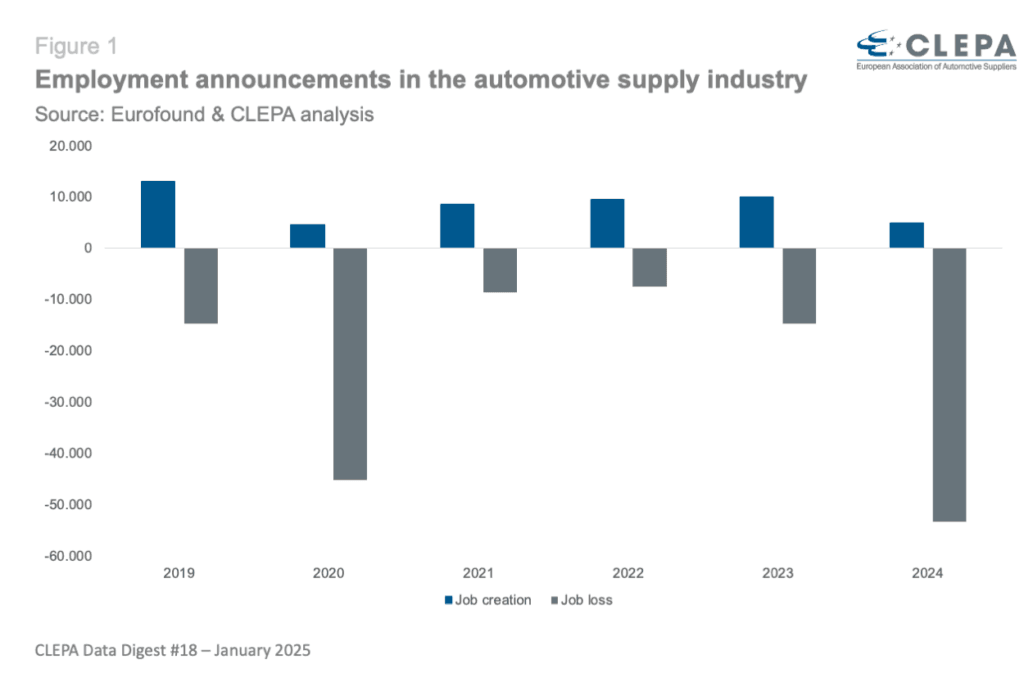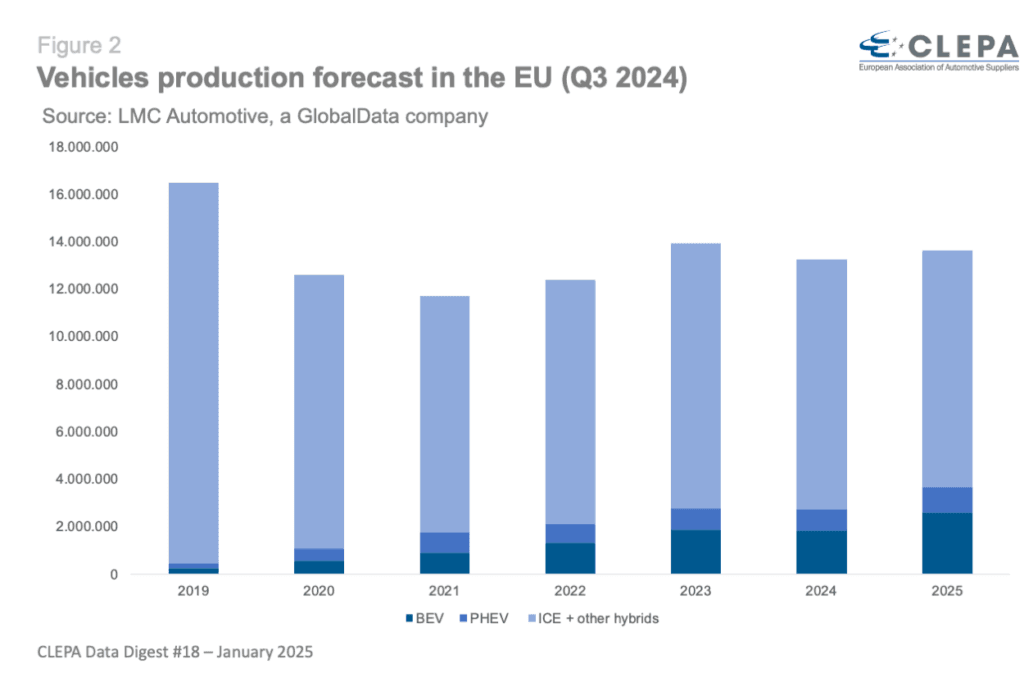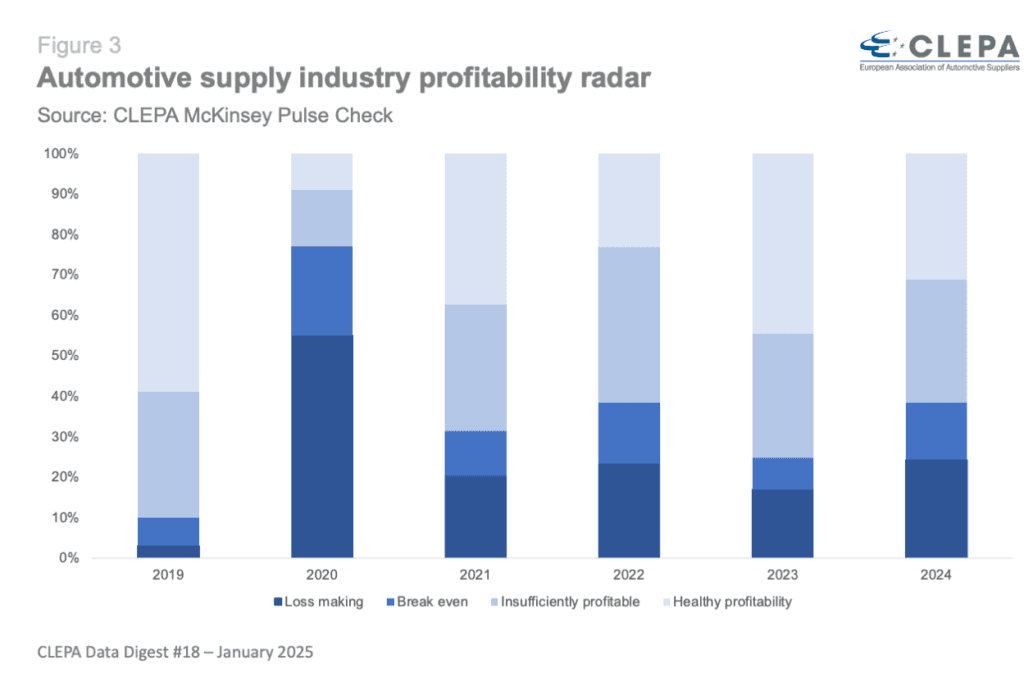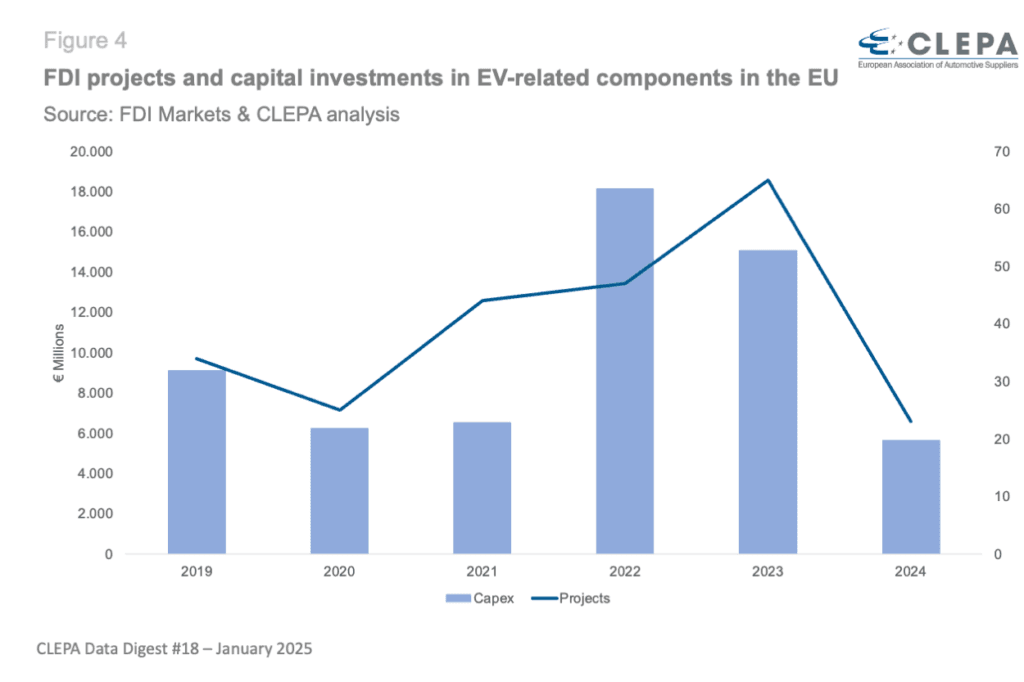Job losses escalate as demand stays below expectation
Car production continues to be 20% or 3 million units below pre-pandemic levels. Furthermore, high energy prices and overall inflation since 2020 have eroded Europe’s competitive edge against China and North America.
The consequences are severe: A record 54,000 jobs cuts were announced in the automotive supply industry in 2024 alone. Investment in electric vehicle projects, such as in electro-mobility components or batteries has plummeted, with many projects either postponed, downsized or cancelled entirely. Additionally, over two-thirds of automotive suppliers report margins below the level needed to sustain crucial investments in new technologies and production modernisation.
Unless demand picks up and Europe regains competitiveness, the wave of job losses will continue well into the coming years, leaving the industry and its workforce in a precarious position.
2024 job cuts surpassed combined losses of pandemic years
In 2024 alone, automotive suppliers announced that 54,000 jobs will be cut, with most of these in the next two to five years. This surpasses the job cuts which were announced during both the COVID-19 pandemic years 2020 and 2021 combined, when 53,700 job cuts were declared. Since 2019, automotive suppliers have announced a total of 145,000 job cuts, while only 51,000 new jobs have been created.
A significant 20% decline in annual vehicle production across the EU, coupled with rising energy and production costs has hit demand and weakened the competitiveness of European-made components. The ongoing shift to electrification is adding pressure. A PwC Strategy& study released in 2021, looking specifically at EV employment impact in the automotive supply industry, had up to 500,000 job losses in the next 15 years linked to the transition, despite the potential creation of 226,000 new positions.

EU production remains 3 million cars below pre-pandemic levels
In 2024, the EU was likely to have produced roughly 700,000 fewer vehicles than in 2023 and 3.2 million fewer vehicles compared to pre-pandemic levels, according to GlobalData (LMCA)’s November forecast.
The anticipated growth in battery electric vehicle production for 2024 did not materialise, slightly declining compared to 2023. However, GlobalData (LMCA) expects a rebound for 2025, with electric vehicles–including battery electric vehicles and plug-in hybrid electric vehicles–forecast to account for up to 27% of total vehicle production, up from 20% in 2024.
Despite this, automotive suppliers remain cautious about the pace of the powertrain transition. As of October, 65% of CLEPA members expected BEV market penetration to remain below 50% by 2030. Broader market forecasts suggest a slightly higher uptake but also point to a slowdown, with EU EV production between 2025 and 2030 now revised downward by a total of five to six million units for the period.

Profit margin fall short, hindering critical investments
According to the latest survey by McKinsey and CLEPA, since 2020, only about a
third of automotive suppliers have maintained healthy profit levels. Even more
concerning, 38% of respondents expect negative or marginal EBIT in 2024,
underscoring the persisting financial strain on the industry.
Profitability challenges continued to weigh heavily on the sector in 2024, with 65%
of automotive suppliers struggling to maintain profit margins above 5% – the
minimum threshold needed for sustainable investments in future technologies.

Investments in EV components production fall to historic low
After years of steady growth, investments in electric vehicle components across the EU have sharply declined in 2024. From 2020 to 2022, direct investments in EV components surged, with capital investment peaking at an estimated €18.15 billion in 2022.
While EV-related investments remained strong in 2023, they have plummeted in 2024, falling to €5.64 billion – the lowest level since 2019.
A key factor behind this downturn is weaker-than-expected demand for electric vehicles, which has had a significant impact on investment decisions. Moreover, at least eight companies have either postponed or abandoned European EV battery projects in 2024.

Contact CLEPA Communications Team at communications@clepa.be

